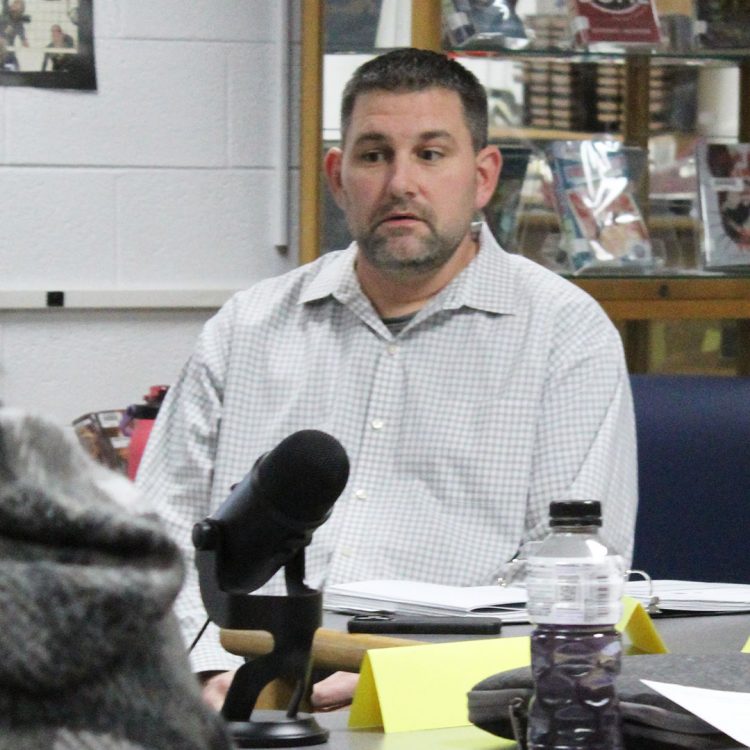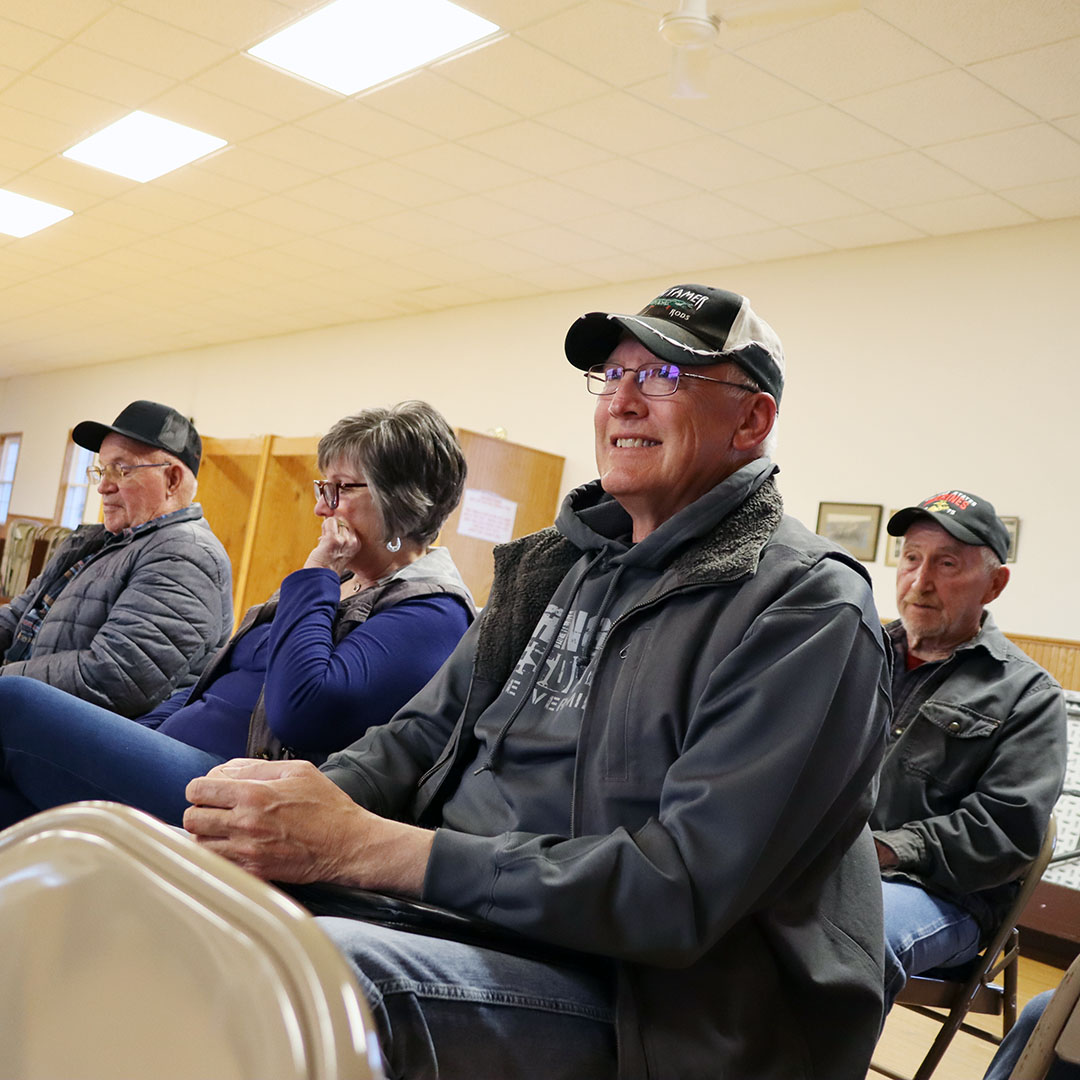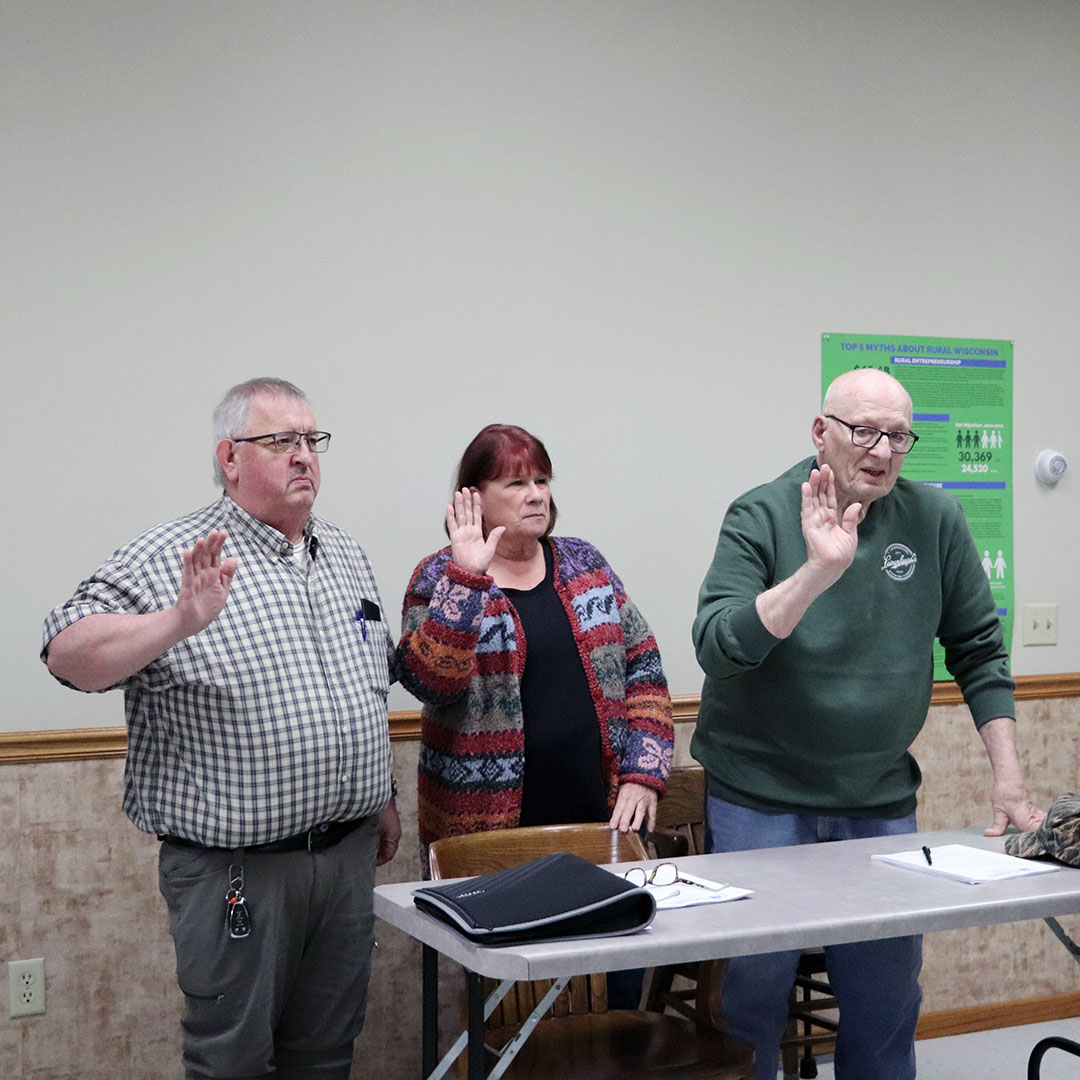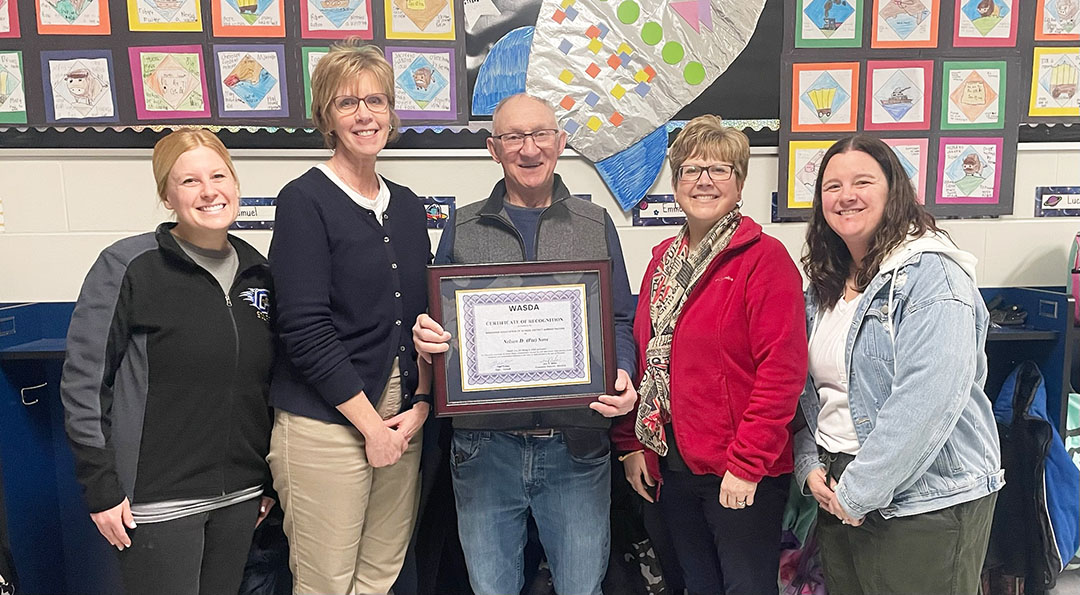Cadott School Board; Referendum goes ahead for April vote


Craig Uhlenbrauck, Miron Construction, was on-hand during a special meeting of the Cadott School Board Jan. 12, to answer questions about a proposed referendum. The board voted to move forward with placing a $9,965,000 referendum question on the April ballot, for tech ed improvements and capital maintenance projects, in the junior and senior high building. Photo by Julia Wolf
By Julia Wolf
In an effort to come to a decision ahead of the January deadline, the Cadott School Board held a special meeting Jan. 12, to discuss whether to move forward with putting a referendum question on the April 2023 ballot, or if they should hold off until a future election date.
The question of what phasing the projects would look like came up at previous meetings. Board president Cory LaNou said some concerns he heard from people, is that a smaller referendum now, could mean 10-15 years, before they go back for another referendum, if ever, for the other projects.
Craig Uhlenbrauck, Miron Construction, says he goes back to the survey, which tells the board what the community is willing to support.
“When you start looking at other aspects of this, I mean, that’s above and beyond the scope, and you start talking about gyms and stuff like that, that’s where the community starts to waffle a little bit,” said Uhlenbrauck.
While Uhlenbrauck agreed it could be 15 years before a second phase, he says most districts don’t wait that long.
LaNou also says in conversations with some stakeholders, that they also think some of the elements of the projects can be pulled out and done with the regular budget money, over a number of years. He questioned if covering more of the projects with district funds would bring the dollar amount for additional improvement areas, like the gym, to a level the community would support.
“I know, priority wise, that was lower down the priority list, but that was because it was going to cost quite a bit extra money to add onto that,” said LaNou.
He says he would like to move forward, but feels they haven’t done enough homework and there is a tight deadline.
Uhlenbrauck says gyms and multi-purpose spaces are big wildcards in the community, and could sway a portion of the population away from supporting a referendum, which means the district would risk improvements to the capital maintenance and tech ed areas.
Superintendent Jenny Starck also reminded the board that she and Ryan Beachem, director of buildings and grounds, went through the projects in the early stages of the referendum planning process and pulled out projects they were planning to cover with the regular budget.
Board member Becca Blanchette asked if moving forward with the tech ed and capital maintenance would negatively impact any of the other sections they want to work on in the future. Kevin Bills, ISG Architects, says even a potential gym addition really wouldn’t impact the capital maintenance projects proposed now.
“The tech ed is in an ideal spot, where it’s not going to impact anything else,” said Bills.
Blanchette says, if they can start on two areas of improvement without impacting the other three, she thinks they should go ahead and get started on them.
“With this first phase, you’re really building momentum, as well,” said Bills.
LaNou also says he would like to see staff, especially in the impacted areas, have more input, but the timing seems tight to do that.
Uhlenbrauck says there is usually some baseline input from staff in the pre-referendum phase. He says they are using a broad view right now, and there is a lot of time and flexibility to work through the details of the spaces.
“Before it actually goes to referendum, we can still start to have those discussions,” said Uhlenbrauck.
Uhlenbrauck says paying for blueprints before a referendum is rare, because the architects need to get paid, even if a referendum does not pass, and blueprints can make the district look overly confident that the referendum will pass.
Blanchette asked what the next steps would be, if a referendum was to pass.
Bills says they would start with a user group meeting, where staff directly impacted gather to work through how they want spaces to function. He says they would share the results with the board after the first meeting and do a budget check. There are additional user group meetings after that, with board updates throughout the process.
Board members also discussed particular line items in the projects, removing or altering some to bring the proposed referendum amount down to $9,965,000. Lisa Voisin, Baird School Business Solutions, said the estimated tax impact, if the referendum was to pass, is $3, per year, per $100,000 worth of property.
Brad Sonnentag, board member, says there still seems like there are a lot of “I thinks” and “what ifs.” He says he still would like to see a timeline for when the second phase will take place.
Board member Christine Rowe says she worries that if they wait until next year to put a referendum question on the ballot, they are going to lose a lot of trust in the community. LaNou says they also could lose trust if they don’t do more research, too.
“What was the purpose of the survey then?” asked Uhlenbrauck. “If you are going to do a survey and pay for a survey, then listen to the results.”
He says a majority of the population supported the tech ed improvements and capital maintenance projects.
Blanchette says she still has questions about some things, but feels better about it after the information shared with them during the meeting.
“I think it’s OK that we still have some questions and we don’t know exactly how everything is going to look,” said Blanchette.
Uhlenbrauck also reiterated that they are willing to meet with staff for discussions before the election.
Voisin says the topic of detailed plans comes up on almost every school referendum she helped with and it always comes back to detail work happening in meetings after the referendum passes. She also says phased plans are common in the state.
“In my opinion, it’s manageable,” said Voisin. “It’s something that a district your size, could manage, as far as a phased borrow.”
She says it will be a higher tax impact, but at least they know that the option is out there.
Board members voted to move forward with putting a $9,965,000 referendum question on the April ballot, with five in favor (Ced Boettcher, Rowe, Blanchette, Kevin Roshell, Karen Winchell) and two opposed (LaNou, Sonnentag).
Starck says the district is planning to host two referendum open house events in the spring. She says additional information about those, along with more details of the proposed project, will be available on the district website and by mail to residents.






